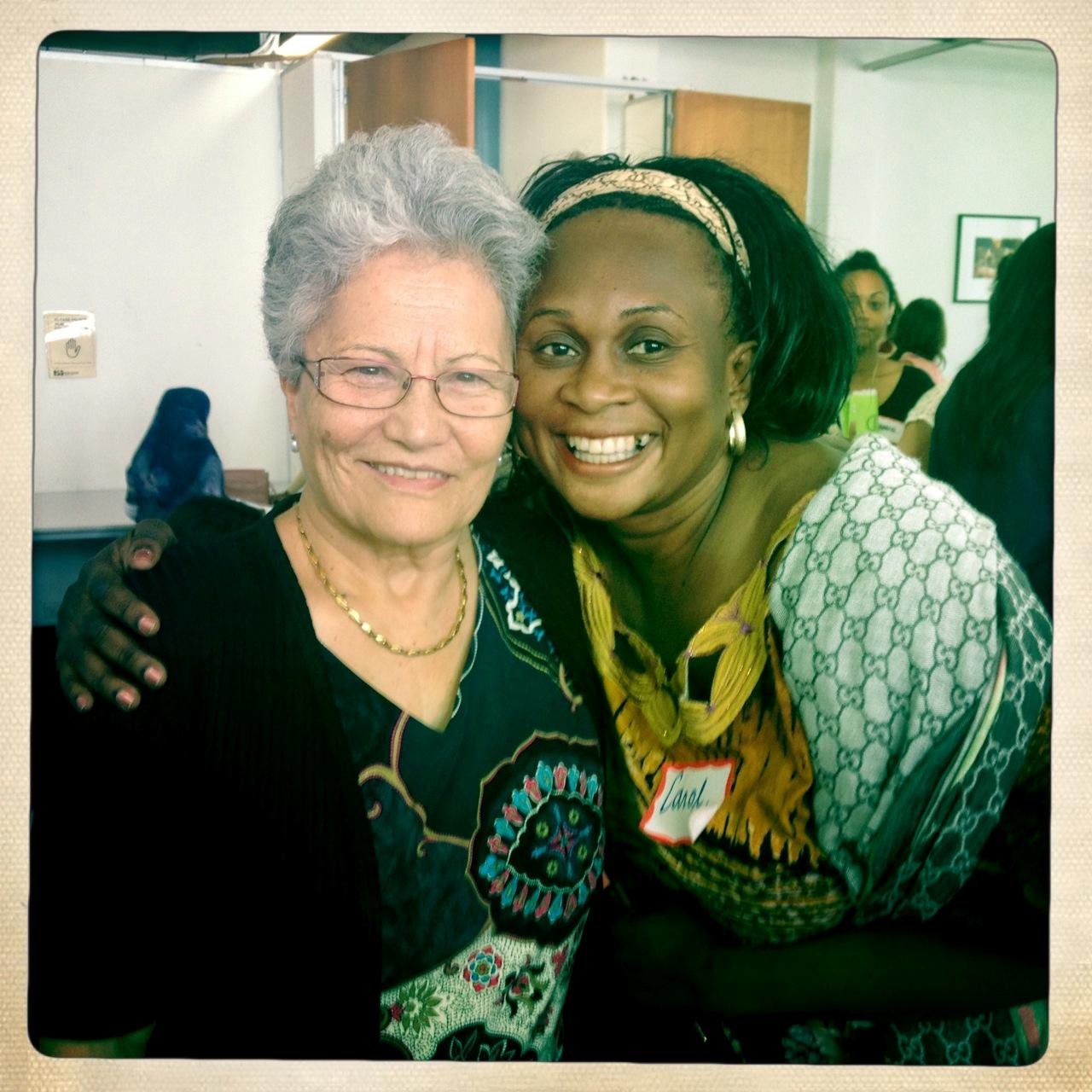
On the weekend I was lucky enough to spend an inspiring afternoon with an impressive cohort of women from some of Melbourne’s migrant and diaspora communities. They came from far-flung places like Afghanistan, South Sudan, Liberia, Kenya, Ethiopia, Israel and Iran – and they were meeting to share experiences and views on the role of women in building peace and enhancing protection of vulnerable people in conflict situations.
The workshop, called “Women Leading Change: Conflict transformation and peace-building” was in part inspired by Australia’s National Action Plan on Women, Peace and Security, which has just recently come into effect. The workshop was the brainchild of the Humanitarian Crisis Hub’s staff and a team of amazing volunteers. The Humanitarian Crisis Hub provides community groups in Australia – particularly diaspora groups from countries affected by war and conflict – with a space and the support they need to take action to promote the human rights of people living in their countries of origin.
Oxfam helped to sow the seed of the Humanitarian Crisis Hub back in 2008, and indeed the organisation was located in our Carlton offices in its early days. Now the Humanitarian Crisis Hub has well and truly grown wings – developing into a dynamic space at Ross House in Melbourne for diaspora communities to learn, collaborate and ultimately take action and make a difference. You don’t have to take my word for it – the Crisis Hub won the Australian Council for International Development Sir Ron Wilson Human Rights Award in 2011, and has just been awarded a Victorian Multicultural Commission’s Multicultural Award for Excellence in 2012 for all the great work they are doing.
So it was no surprise to find inspiring people doing inspiring things at the “Women Leading Change” workshop. Director Denise Cauchi kicked off the day presenting on the courageous role that women have played around the world in conflict zones – as peacemakers and mediators, human rights defenders, peacekeepers and within their own families as mothers, grandmothers, sisters and daughters. From the Madres of the Plaza de Mayo, mothers who fought to be reunited with children abducted during Argentina’s ‘Dirty War’ – to the women bravely monitoring and holding armed groups accountable to ceasefires in Mindanao, Philippines.
It was clear from the voices in the room that women in Melbourne’s diaspora communities are also actively promoting peace and justice in their communities and countries of origin. From an Israeli woman helping to facilitate dialogue with Palestinians in Australia – to Dr Nouria Salehi OAM, who established the Afghan Australian Development Organisation or AADO.
Nouria, a Senior Physicist at the Royal Melbourne Hospital, came to Australia from Afghanistan in the 1980s. She spoke about AADO’s work training science teachers and supporting women with life skills such as literacy. The room erupted in applause when Nouria told the group that over the last decade she has managed to raise $1.9 million dollars towards this cause. She assured us that “every dollar is accounted for” – which includes Nouria using video skype to confirm that AADO’s programs in Afghanistan are being implemented properly: “Tonight when I get home I will skype the program managers in Kabul and get them to show me that the teachers are there being trained”, she said.
Oxfam’s experience in Afghanistan attests to the importance of women and girls’ education and economic empowerment programs like this in building peace – and importantly making it sustainable and inclusive for all. As a woman said at an Afghan Women’s Network seminar in Kabul a while back: ‘We believe peace is not the absence of war. Peace for Afghan women is also about access to health care, educational facilities and socio-economic opportunities.’
The dedication and tenacity of the women in the room at this workshop was palpable. While the challenges they face are enormous, women in diaspora communities are making an incredible contribution to building peaceful and safe societies back home – in addition to contributing to a safe and prosperous society here in Australia. Hats off to the Humanitarian Crisis Hub and the participants of the workshop for being Women Leading Change.
Steph Cousins, Humanitarian Advocacy Lead, Oxfam Australia